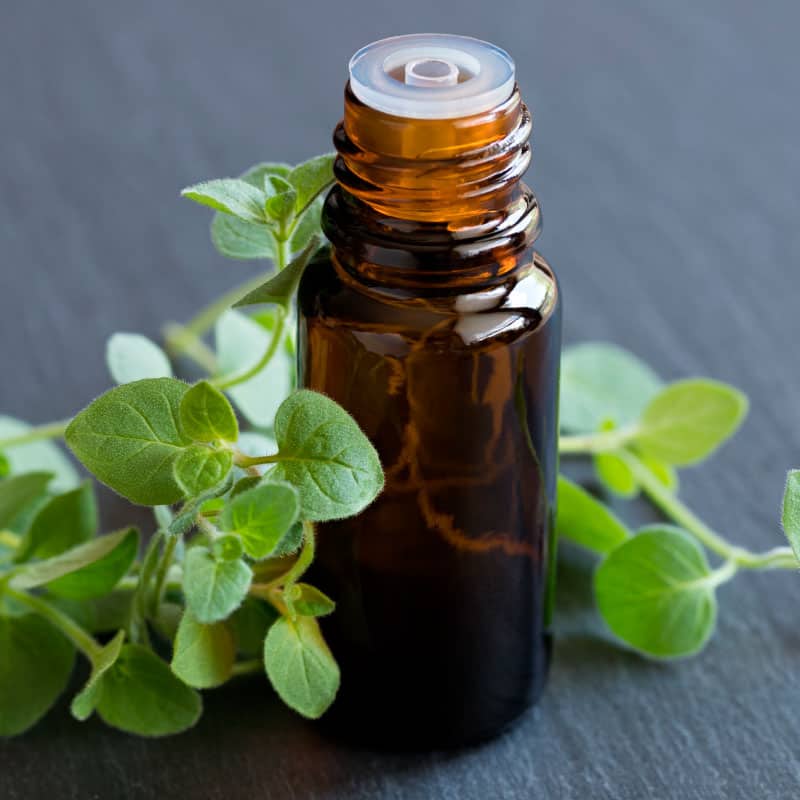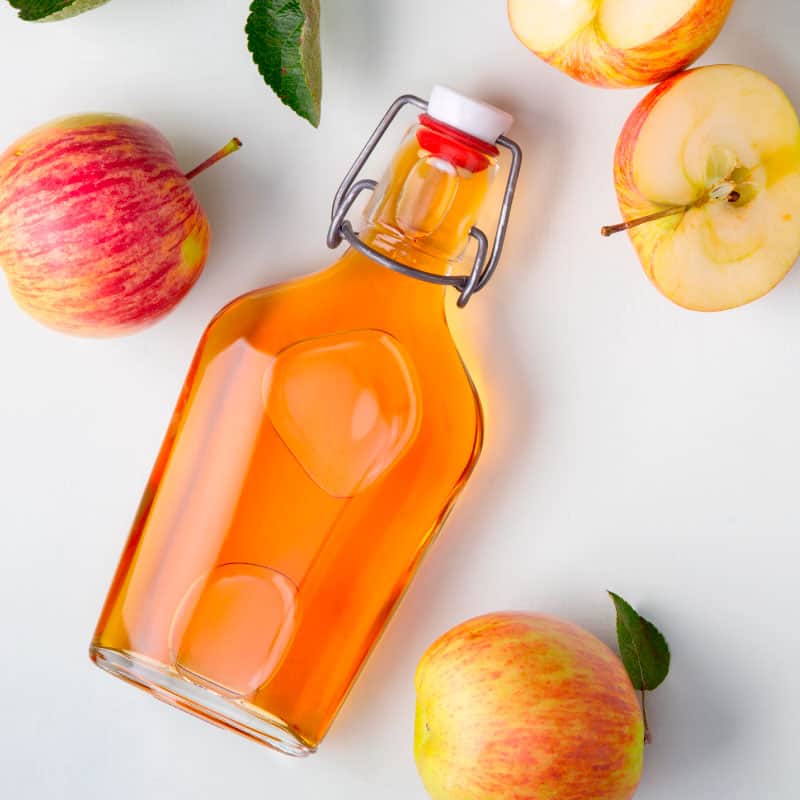This Dr. Axe content is medically reviewed or fact checked to ensure factually accurate information.
With strict editorial sourcing guidelines, we only link to academic research institutions, reputable media sites and, when research is available, medically peer-reviewed studies. Note that the numbers in parentheses (1, 2, etc.) are clickable links to these studies.
The information in our articles is NOT intended to replace a one-on-one relationship with a qualified health care professional and is not intended as medical advice.
This article is based on scientific evidence, written by experts and fact checked by our trained editorial staff. Note that the numbers in parentheses (1, 2, etc.) are clickable links to medically peer-reviewed studies.
Our team includes licensed nutritionists and dietitians, certified health education specialists, as well as certified strength and conditioning specialists, personal trainers and corrective exercise specialists. Our team aims to be not only thorough with its research, but also objective and unbiased.
The information in our articles is NOT intended to replace a one-on-one relationship with a qualified health care professional and is not intended as medical advice.
Top Natural Remedies for Coronary Heart Disease
Reviewed by Joel Kahn, MD
June 3, 2018

Coronary heart disease (CHD) is currently the leading cause of death among adults in the U.S. — and according to the Centers For Disease Control and Prevention (CDC), it has maintained this ranking as the No. 1 killer since 1921. (1)
Coronary heart disease is a condition caused by the buildup of waxy plaque in the arteries that flow to and from the heart. CHD often goes by several other names, including coronary artery disease, heart disease and arteriosclerotic heart disease.
What is heart disease caused by, and what does this tell us about how to prevent it? Most cardiovascular disorders are related to elevated inflammation levels — so, as you’ll learn, by reducing inflammation, the root of most diseases, you can place your body in a state that is conducive to healing.
Here’s the good news for those struggling with heart disease: adjusting your diet, reducing stress levels and regularly exercising are all ways you can naturally control inflammation, and therefore are beneficial for treating and preventing coronary heart disease. And as you’ll more about below, there are many whole foods that are available in common grocery stores that can help protect your heart, as well as lower your risk for developing various forms of chronic diseases in the future.
What Is Coronary Heart Disease?
CHD occurs when the small blood vessels that supply blood and oxygen to the heart narrow and sometimes harden, which over time can cause ruptures, heart attacks and other fatal conditions.
Heart disease is sometimes called a “disease of Western, modern civilization” because it was rare before 1900, and still remains much less common in pre-industrialized populations today. (2) By the mid 1900s, coronary heart disease became the nation’s biggest killer, and today all forms of cardiovascular diseases — including conditions of the heart and blood vessels like angina, congestive heart failure and stroke — are still the leading causes of death in many Western nations. Cardiovascular diseases kill more than 630,000 Americans a year, men and women pretty much equally. (3) Currently, heart disease is the cause of about 1 in every 4 deaths in the U.S. (4)
For the past several decades, doctors have mostly turned to medications and surgeries to help treat cardiovascular disease — including clot-busting prescription drugs, tiny balloons implanted inside the body to open up arteries and bypass surgeries.
The result is that, today, coronary heart disease is considered more chronic than necessarily fatal. However, these treatments are really resolving symptoms rather than addressing the underlying causes of heart disease. Recently, it’s become apparent that lifestyle and dietary changes are fundamental to truly treating heart disease and/or preventing it from returning.
CHD vs. CAD vs. Atherosclerosis
- Many people use the names coronary artery disease and coronary heart disease interchangeably.
- Coronary artery disease is considered the most common type of heart disease. It occurs when there’s a blockage of one or more arteries that supply blood to the heart. (5)
- In the first stage of heart disease, called angina, blood flow to the heart is restricted. When blood flow stops, there’s a myocardial infarction, also known as a heart attack. The combination of these two conditions is what many doctors are referring to when they say “coronary heart disease” (or CHD).
- What is atherosclerosis, and how does it differ from CHD/CAD? When someone has CHD or CAD, the buildup of substances inside their arteries is what is referred to as arteriosclerosis (also spelled atherosclerosis). The definition of arteriosclerosis is “a disease of the arteries characterized by the deposition of plaques of fatty material on their inner walls.” (6)
- Arteriosclerosis refers to hardening and thickening of the walls of the arteries. It is often said to be “partly a function of aging.” Over time the smooth, elastic arterial cells become more fibrous and stiff. Calcium, cholesterol particles and fatty acids accumulate on arterial walls and form a swelling called an atheroma. Atheroma are capable of bursting, causing blood clots, and leading to heart attacks or strokes. In populations that eat an unprocessed diet, far less inflammation-caused arteriosclerosis and heart disease are present.
Symptoms
Not everyone who has CHD even knows it — especially people who are in the early stages. Some symptoms of CHD can be very noticeable, however, it’s also possible to have this disease and experience no symptoms at all or only slight symptoms.
Coronary artery disease symptoms vary a lot from person to person. The most common noticeable sign of CHD is having chest pain or discomfort, which is caused when the heart is not getting enough blood or oxygen.
Other coronary artery disease symptoms can include: (7)
- Feeling a “heaviness” or like someone is squeezing your heart. This is called angina (another name for chest pain) and is probably the most common blocked artery symptom. It’s possible to experience various forms of chest discomfort including heaviness, tightness, pressure, aching, burning, numbness or fullness.
- Pains or numbness in your breast bone (sternum), neck, arms, stomach or upper back
- Shortness of breath and fatigue with activity
- General weakness
- Indigestion or heartburn
If CHD progresses, you may experience a heart attack, also called myocardial infarction. Heart attack symptoms can include:
- Pain or discomfort in the upper body including the chest, arms, left shoulder, back, neck, jaw or stomach
- Difficulty breathing and shortness of breath
- Sweating
- Feeling of fullness, indigestion, choking or heartburn
- Nausea or vomiting
- Light-headedness, dizziness and weakness
- Anxiety and panic
- Rapid or irregular heart beats
Causes
What really causes CHD and heart attacks? CHD is ultimately a result of inflammation from fatty material and other substances forming a buildup of plaque that accumulates within the walls of your arteries. Because these arteries have the crucial role of bringing blood and oxygen to your heart, reduced blood flow can slow down or stop your heartbeat, causing “cardiac arrest.”
For this reason, medical professionals use a combination of lifestyle changes, medicines and medical procedures to slow, stop or reverse the buildup of plaque. This can help lower the risk of blood clots forming and a heart attack taking place because it widens clogged arteries.
What are risk factors for developing coronary heart disease? (8)
- High amounts of free radical damage (also called oxidative stress) and low antioxidant levels in the body. When antioxidant levels are lower than those of free radicals due to poor nutrition and other lifestyle factors, oxidation wreaks havoc in the body — damaging cells, breaking down tissue, mutating DNA and overloading the immune system.
- Being a male, since men develop CHD more other than women (although it affects both sexes)
- Being over the age of 65
- High consumption of alcohol
- Smoking
- Eating a poor diet with unhealthy fats and processed foods
- Family history of coronary heart disease, stroke or peripheral arterial disease
- Menopause in women
- Having high blood pressure, diabetes or high cholesterol levels
- Lack of physical activity or exercise
- Obesity
- Sleep deprivation
- Exposure to environmental pollutants and toxic chemicals
Related: How to Maintain Normal Troponin Levels
Conventional Treatment
Half a century ago, coronary heart disease killed an even greater percentage of those who suffered from it, but fortunately, doctors today are more adept at using various treatments to control heart disease symptoms. Some of these are effective at lowering blood pressure, triglycerides and cholesterol, but many simply target symptoms and don’t focus on the bigger picture.
Many doctors place people with coronary heart disease on a treatment plan that includes both prescription medications and lifestyle changes. Depending on which healthcare professional you choose, your symptoms and how severe the disease is, you might be prescribed one or more medicines to treat your high blood pressureor high cholesterol or to prevent complications like diabetes.
Examples of medications used to treat CHD include: cholesterol-modifying medications like aspirin, beta blockers, nitroglycerin, angiotensin-converting enzyme (ACE) inhibitors and angiotensin II receptor blockers (ARBs).
Many people are able to prevent CHD and recover from it naturally by maintaining a healthy lifestyle: changing their diet, stopping smoking, getting good sleep and adding in supplements on top of some other things we’ll discuss below.
Natural Remedies for Coronary Heart Disease
1. Lifestyle Changes (Quitting Smoking & Eating A Healthy Diet)
A 2016 study found that living a healthy lifestyle — including exercising, eating a healthy diet full of fruits, vegetables and grains and not smoking — can lower your risk of heart disease, even if you are genetically predisposed to developing the disease. The study looked at 55,685 participants total in three prospective cohorts and one cross-sectional study. According to The New York Times:
The investigators found that genes can double the risk of heart disease, but a good lifestyle cuts it in half. Just as important, they found, a terrible lifestyle erases about half of the benefits of good genetics. (9)
The individual results of each study were impressive. In the first study, when participants with the highest genetic risk followed a healthy lifestyle, they cut the 10-year likelihood of heart disease from 10.7 percent to 5.1 percent. In the second study, the high-risk and healthy lifestyle participants’ 10-year risk dropped from 4.6 percent to 2 percent. In the third study, participants risk went from 8.2 percent to 5.3 percent. In the final study, participants with a high genetic risk living a healthy lifestyle had significantly less calcium in their coronary arteries, which is a sign of CHD. (10)
This groundbreaking research illustrates that you can naturally reduce your risk of heart disease. Below we’ll look closer at foods, supplements, essential oils and lifestyle changes you can implement to achieve greater health and fight off coronary heart disease.
2. Avoiding Inflammatory Foods
Should you eat a low-fat diet to prevent heart disease? When most people think of foods that increase their chances of developing heart disease, fatty cuts of meat and fried food probably come to mind. For many years, the public was led to believe that cholesterol-rich foods and saturated fats of all kinds increased the risk for heart disease. “The cholesterol hypothesis,” as it’s called, rested on the assumption that saturated fats raise cholesterol levels that wind up clogging the arteries.
However, a number of researchers today have demonstrated that this is not necessarily true, and that while this theory has been widely accepted, it has never been proven. Cholesterol is actually an essential component of healthy cells and organisms, and we all need to maintain a certain level to thrive!
According to a 2009 study published in the International Journal of Clinical Practice,
It is now acknowledged that the original studies purporting to show a linear relation between cholesterol intake and coronary heart disease (CHD) may have contained fundamental study design flaws, including conflated cholesterol and saturated fat consumption rates and inaccurately assessed actual dietary intake of fats by study subjects. (11)
Many experts today now believe that elevated blood cholesterol is a symptom, not a cause, of heart disease. Whether or not someone’s blood cholesterol level is increased by eating a certain food depends on that person’s individual cholesterol makeup, and each person is different. Several recent studies have shown that the dynamics of cholesterol homeostasis and of development of CHD are extremely complex and multifactorial. This suggests that the previously established relationship between dietary cholesterol and heart disease risk was overexaggerated. (12)
In the majority of people, the real cause of heart disease may be inflammation. (13) Foods to avoid to prevent CHD that promote inflammation include:
- Corn and soybean oils
- Pasteurized, conventional dairy
- Refined carbohydrates
- Conventional meat
- Sugars of all kinds
- Trans fats
But don’t many health authorities still warn against eating too much fat? Despite the existing evidence that eating cholesterol isn’t the cause of heart disease, most government-funded health associations, including the National Heart, Lung and Blood Institute, still recommend limiting saturated fats. As part of a treatment plan called “Therapeutic Lifestyle Changes” (TLC) — used to control high blood cholesterol through a healthy diet, physical activity and weight management — the Institute recommends that less than 7 percent of daily calories come from saturated fats. They recommend limiting fat-containing foods like meats, dairy products, chocolate, baked goods and deep-fried and processed foods. (14)
The TLC diet is purposefully low in saturated fat, trans fat and dietary cholesterol. No more than 25–35 percent of your daily calories are intended to come from all fats, including saturated, trans, monounsaturated and polyunsaturated fats.
Going forward, we can expect guidelines like this to be updated to reflect the most recent study findings. Over the last decade, many countries and health promotion groups have modified their dietary recommendations to reflect the current evidence and, in fact, now address the negative consequence of ineffective dietary cholesterol in someone’s diet. (15)

3. Eating a Heart-Healthy Diet
Following a healthy, whole-foods–based diet can reduce inflammation, high blood pressure and unhealthy high cholesterol. Of course, eating well will also help you maintain a healthy weight and have more energy to be active, both of which are important for preventing coronary heart disease. Instead of focusing on eating low-fat foods to reduce fat and cholesterol, I believe we would be much better off making our goal to reduce inflammation.
The healthiest anti-inflammatory foods for fighting coronary heart disease are those brimming with antioxidants and phytonutrients that lower your immune system’s overactive response. These help fight free radical damage and target the problem where it starts by lowering oxidative stress.
How do you know what the top antioxidant foods are? Anything loaded with fiber, grown directly from the earth and brightly colored is a good place to start!
Healthy fats and animal proteins have a place among other whole foods in a heart-healthy diet, too. When it comes to including healthy fats, the general effect of quality saturated fats in someone’s diet is to help balance the ratio of HDL to LDL cholesterols. Regarding HDL cholesterol, some feel “the higher, the better,” but we know that the ratio of cholesterol is important too. (16)
Foods that help reduce inflammation and, therefore, the risk of CHD include:
- Fiber-rich and antioxidant-rich foods of all kinds
- Vegetables (all kinds, including beets, carrots, cruciferous vegetables like Brussels sprouts, broccoli, cabbage, cauliflower and kale, dark leafy greens, artichokes, onions, peas, salad greens, mushrooms, sea vegetables and squashes)
- Fruits (all kinds, especially berries and citrus)
- Herbs and spices, especially turmeric (curcumin) and raw garlic (also basil, chili peppers, cinnamon, curry powder, ginger, rosemary and thyme)
- Traditional teas like green tea, oolong or white tea
- Legumes and beans
- Healthy fats found in nuts, seeds, avocados, wild-caught fish and extra virgin olive oil —learn about what high-cholesterol foods to avoid versus eat
- Raw, unpasteurized dairy products, cage-free eggs and pasture-raised poultry
- Red wine in moderation
If you look at evidence from many people living a traditional diet, it doesn’t seem that saturated fats are the cause of coronary heart disease. Foods containing saturated fats — such as full-fat dairy, organ meats, beef, eggs, lard and butter — are actually found in high levels in many of the healthiest, longest-living people that have been studied, like those in the Blue Zones.
The Mediterranean diet is one of the most popular and effective anti-inflammatory diets that exists. Foods commonly eaten in the Mediterranean region include fish, vegetables, beans, fruits and olive oil. These have been shown to lower cholesterol and triglycerides and reduce symptoms of numerous chronic diseases. (17) Following this type of diet that is low in sugar, processed foods, preservatives, vegetable oils and artificial ingredients can also help you maintain a healthier weight.
4. Using Heart-Healthy Supplements
You’ll get the most benefits from a healthy diet when you consume real foods that provide natural, absorbable nutrients. While it’s helpful to be aware of certain nutrients that can help protect your heart, eating a wide variety of whole foods and reducing toxin load in your body is by far the most important thing. That being said, some supplements added to a nutrient-dense diet may also be helpful for treating heart problems.
I recommend the following supplements for controlling inflammation and supporting heart health:
- Omega-3 fish oil supplements or 1 tablespoon of fish oil (such as cod liver oil) daily — if you avoid fish, try plant-based algal oil
- Curcumin (turmeric) and garlic supplements
- Coenzyme Q10
- Carotenoids
- Selenium
- Vitamin C
- Vitamin D
- Vitamin E
- Glucosamine
A study published in May, 2019 in the BMJ found evidence that habitual use of glucosamine supplements, which are commonly taken to help relieve osteoarthritis pain, may also be related to lower risks of cardiovascular disease (CVD) events. (18) Ongoing use of glucosamine — which is a crystalline compound which is found inside connective tissue and cartilage — was associated with a 15 percent lower risk of total CVD events and a 9 to 22 percent lower risk of individual cardiovascular events. The protective effects of glucosamine on CVD outcomes were even stronger among current smokers.
The study followed over 466,000 participants without heart disease at the beginning of the study and tracked their supplement use and health for eight years. It was found that after adjusting for age, sex, body mass index, race, lifestyle factors, dietary intakes, drug use, and other supplement use, glucosamine use was associated with a significantly lower risk of total CVD events, CVD death, coronary heart disease development and stroke. It’s believed glucosamine can reduce C reactive protein concentrations, which means it can help lower systemic inflammation, and also mimic the protective effects of a low-carbohydrate diet, since it can decrease glycolysis (the breakdown of glucose by enzymes) and increase breakdown of proteins.
5. Exercise
While there are really too many types and benefits of exercise to list here, just know that exercise helps restore and maintain cardiovascular health by improving blood flow, bringing more oxygen to your cells, managing hormones and blood sugar levels and helping you relax. This makes it one of the most powerful things you can to do prevent clogged arteries.
Studies suggest that exercise can benefit your heart just as much as certain medications. A meta-review of more than 305 clinical trials focusing on exercise benefits even found that, amazingly, no statistically detectable differences existed between those who exercised and those who were given medications in the prevention of coronary heart disease! (19) The conclusion of the analysis was that “exercise and many drug interventions are often potentially similar in terms of their mortality benefits in the secondary prevention of coronary heart disease, rehabilitation after stroke, treatment of heart failure, and prevention of diabetes.”
Try whichever type works best for you and your current level of fitness, such as burst training, HIIT workouts, Crossfit, yoga, Tai Chi or simply walking more.
6. Stress Reduction
Stress raises cortisol levels and may interfere with inflammatory responses when left unmanaged. Chronic stress caused by our modern, fast-paced lifestyles can affect just about every bodily system — suppressing the immune system, slowing metabolism, and stalling digestion, detoxification and cell regeneration.
Research conducted by the Department of Epidemiology and Public Health at University College of London suggests that:
Chronic stress predicts the occurrence of coronary heart disease (CHD). Employees who experience work-related stress and individuals who are socially isolated or lonely have an increased risk of a first CHD event … Among patients with CHD, acute psychological stress has been shown to induce transient myocardial ischemia and long-term stress can increase the risk of recurrent CHD events and mortality. (20)
Some of the best natural stress relievers include nixing caffeine, smoking and alcohol, getting proper sleep, working out, praying and/or meditating, journaling, doing something creative, cooking or spending time with family and pets.
7. Essential Oils
There are many natural plant-derived essential oils that can help manage inflammation and symptoms related to heart disease. (21) Some include lemongrass oil, helichrysum oil and ginger oil. (22, 23, 24)
The active ingredients found in plants are their most potent in this concentrated form. Ginger essential oil, for example, contains the highest levels of anti-inflammatory gingerol, and helichrysum oil kicks off inflammatory enzyme inhibition, free-radical scavenging activity and corticoid-like effects. I recommend diffusing these oils in your home, inhaling them directly and applying them topically to your skin (such as over your chest) after mixing them with a carrier oil like coconut oil.
Final Thoughts
- Coronary heart disease (CHD) occurs when the small blood vessels that supply blood and oxygen to the heart narrow and sometimes harden, which over time can cause ruptures, heart attacks and other fatal conditions.
- Many people use the names coronary artery disease (CAD) and coronary heart disease (CHD) interchangeably. Coronary artery disease is considered the most common type of heart disease. Heart disease is the leading cause of death in the U.S. and many other developed/industrialized nations.
- Causes and risk factors of coronary heart disease include: being a male, being over 65, family history of heart disease, eating a poor diet, obesity, being sedentary, smoking, and having high blood pressure, diabetes or high cholesterol levels.
- Natural treatments for coronary heart disease include: lifestyle changes like quitting smoking, avoiding inflammatory foods, eating a heart-healthy diet, taking anti-inflammatory supplements, exercising, managing stress, and using essential oils.
Read Next: SCAD — Yes, Young Women Can Suffer a Heart Attack











